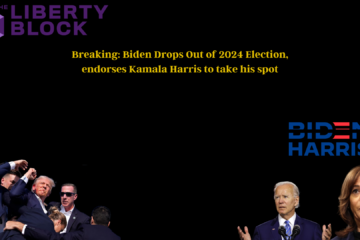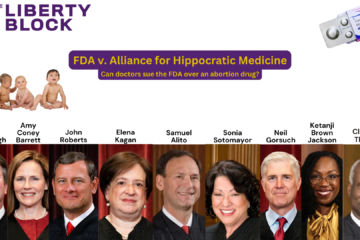The House Finance Committee held a work session on HB628 – the family medical leave insurance bill on Tuesday afternoon. Unlike a public hearing, the public does not have the opportunity to speak at work sessions. During the session, NH Dept. of Employment Security Deputy Commissioner, Richard Lavers, walked the Committee through a long packet explaining the FMLI program outlined by HB628. The packet also included lots of data from the other states whose governments have implemented an FMLI program.

The Committee seemed to learn a lot from the presentation by Lavers; their sentiment by the end of the session seemed to be that they were overwhelmed by the sheer bureaucracy created by the program and they seemingly saw this program as unsustainable as written.
The items that Lavers mentioned that seemed to leave the biggest impression (and cause for worry) on the Committee members were:
1) Of the 5 states that have implemented FMLI (NY, NJ, RI, CA, & WA), none of them allow people to opt out of the payroll tax, which is called a ‘premium’ in the legislation. HB628 does include an opt-out provision.
2) Of the 5 states that have implemented FMLI, none seem to have programs that are actually up and running at full capacity (these programs are typically phased in over a few years). The first state to pass FMLI was Washington in 2007. The program is still not operational, according to Lavers.
3) New Jersey has had FMLI since 2009. The program currently allows people up to 6 weeks off per year, and pays them 0.67% of their income, but caps that income at $615. This means that the program is much more beneficial for low-wage workers and is more harmful to high-wage earners.
(Despite NJ Governor Corzine proudly exclaiming “I am confident this self-funded family insurance program will improve family life, fill a gap in our social contract with our citizens and attract workers to this state” as he signed it into law, the data shows that it may have had the exact opposite effect. It shows that more NJ college grads are forced to move back into their parents’ homes than their counterparts in any other state and that millions of NJ residents are moving to other states. This may be in large part due to the job-killing taxes and regulation that NJ’s government has burdened workers with over the years. Do we want to make New Hampshire more like New Jersey, New York, California, Washington, & Rhode Island?)
4) Rhode Island and New York passed FMLI a few years ago. They both fund the program by charging a tax (called a ‘premium’ to confuse voters) on employers. This tax can seemingly be adjusted by the government each year with no legislation, depending on how sustainable the program is/how much cash sits in the fund at any given time.
5) Lavers said that Rhode Island’s FMLI payroll tax seems to fluctuate between 1.1-1.3%. The government could adjust it every year.
6) The Committee learned that according to the government-funded study conducted by Dr. Hayes, 6.4% of participants would use the paid leave, and the average duration (with the maximum allowable leave being 12 weeks) would be 8 weeks. “But once the opt-out amendment passed, that became rubbish”, explained Lavers.
6) Lavers went on to explain that if people are allowed to opt-out of this program, the highest earners/those who do not foresee themselves benefiting from this would opt out and those who make the least amount of money/expect to use the benefit would remain. This is obviously a recipe for unsustainability. This is because the program is funded by 0.67% of income. Since it is based on the percentage of the income the employee makes, the highest earners would be the ones who fund the program the most, whereas the the lower earners could not fund the program as well as their wealthy counterparts. This makes this ‘FMLI program’ another ‘redistribution of wealth program’. (0.67% of $200,000 can go a long way towards funding a program; 0.67% of $30,000 is considerably less money.)
“The folks on the bottom of the wage scale would take advantage of this program more than the high earners”, said Lavers
7) Despite the bill not limiting the amount an employer could be forced to pay in taxes/premiums, there IS a limit to how much a person could receive in FMLI benefits. HB628 reads:
“…provided that no such calculation of FMLI benefits shall be less than $125 per week or greater than 0.85% of the average weekly wage in New Hampshire.”
This guarantees that ultra-wealthy people will opt out of this unfair tax – they would be financially stupid not to!
8) The Employment Security Department brought their data to the NH Insurance Department actuaries and asked for their determination as to whether the program is sustainable. Lavers said that the actuaries told him that they cannot make that determination and that he should seek ‘an outside expert’.
9) In addition to high earners opting out and rendering the program insolvent, there seems to be well-founded concern that other cohorts would opt out for other reasons as well:
“Why wouldn’t everyone who is not planning to have a baby (all men and all post-menopausal women) and those whose parents are no longer alive (so that it’d be impossible for them to utilize the paid leave to care for their sick parents) just opt opt and be covered by short term disability? It covers all the same stuff.”, asked Representative Ober, who is the Committee Chair.
10) Possibly in response to Ober’s question, Lavers reminded the Committee that “All private companies are in the program unless they prove to the state that they are already providing FMLI [to their employees].” Lavers went on to clarify that the federal FMLI law provides non-paid leave and that it only applies to employers who have more than 50 employees. The proposed New Hampshire program would apply to ‘all non-governmental employers’.
11) We learned that the New Hampshire government would likely borrow money in order to create/fund this program. This would put us and our children into more debt.
12) The 4-million-dollar question was asked again at the work session: “Is FMLI offered by private insurance companies in NH?”
Nobody in the room seemed to be able to answer this lingering question. It may be more complicated than it appears. (The last Committee Chair to whom I asked this question seemed to duck it as well as a professional politician might be expected to)
13) Based on the Rhode Island model of the FMLI program, Lavers recommended that we assume that the average length of the paid leave taken would equal 90% of the maximum allowable duration of paid leave (which was decreased from 12 to 6 weeks by the Democrats’ amendment).
14) This is a payroll tax – which is like an income tax, only worse. This has been a point of contention personally and among many others in New Hampshire. I personally asked Lavers as he was leaving, and he confirmed that this is technically a tax on employers, meaning that the bill would create a payroll tax.
The Finance Committee plans to hold another work session with the Insurance Dept. on Thursday, March 1st.


